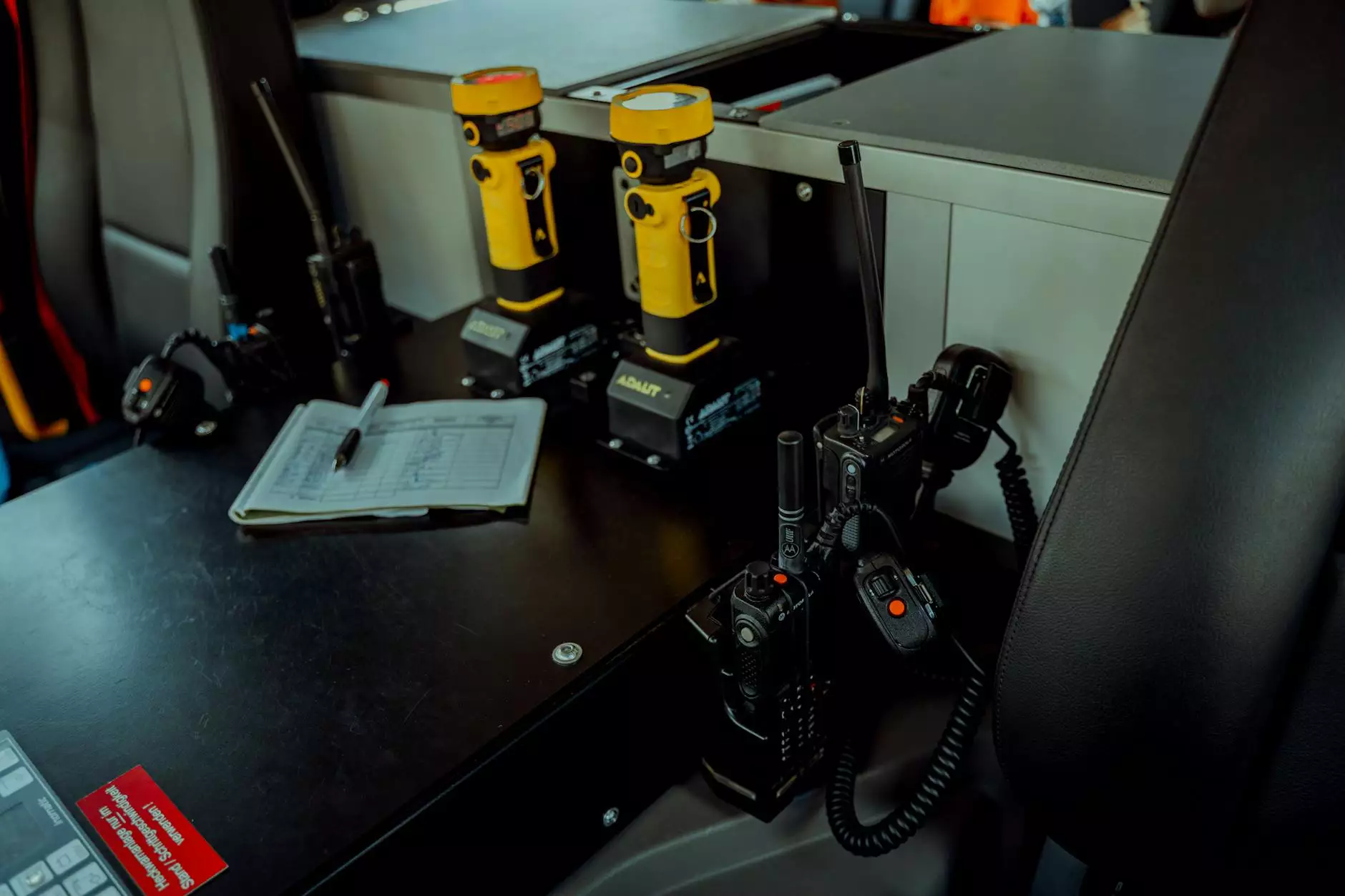The Essential Role of Dispatcher Trucks in the Logistics Industry

In the fast-paced world of logistics and transportation, the dispatcher truck has emerged as a pivotal element for operational success. As businesses strive for efficiency, adopting the right strategies and tools becomes critical in maintaining a competitive edge. This article will delve deep into the world of dispatcher trucks, their functionalities, advantages, and their crucial role in ensuring seamless delivery operations.
Understanding the Concept of Dispatcher Trucks
A dispatcher truck refers to a vehicle equipped with advanced technology that aids dispatchers in managing freight logistics effectively. These trucks serve not only as transportation units but also act as mobile command centers, enhancing the capabilities of logistics operators.
What Makes a Dispatcher Truck Special?
The primary function of dispatcher trucks is to facilitate communication between drivers and logistics coordinators. Equipped with GPS tracking, real-time updates, and communication tools, dispatcher trucks enable a streamlined flow of information. This integration provides unparalleled visibility into freight movement, allowing for timely decisions that can significantly affect delivery schedules.
Features of Dispatcher Trucks
The utility of a dispatcher truck is best understood through its key features:
- GPS Tracking: Provides real-time location data, allowing dispatchers to track shipments effectively.
- Communication Systems: Ensures constant contact between drivers and the dispatch team to manage issues as they arise.
- Load Management Tools: Helps in optimizing load capacities and improving delivery routes.
- Software Integration: Many dispatcher trucks come with pre-installed software for efficient tracking and reporting of deliveries.
- Safety Features: Advanced safety systems equipped in these trucks ensure the protection of goods and the driver.
The Advantages of Utilizing Dispatcher Trucks
Incorporating dispatcher trucks into your logistics operations offers numerous advantages:
1. Increased Efficiency
The ability to access real-time data allows logistics companies to make immediate adjustments in their routes and schedules. This agility is crucial in meeting customer demands and sustaining operational efficiency.
2. Enhanced Communication
With robust communication systems, dispatcher trucks facilitate consistent contact between drivers and dispatchers. This constant communication helps in quicker problem-solving and managing unexpected delays effectively.
3. Better Resource Management
Implementing dispatcher trucks leads to better resource allocation. By optimizing routes and loads, companies can minimize fuel consumption and maximize delivery capacity.
4. Improved Customer Satisfaction
Your customers will appreciate the transparency and reliability offered through updated tracking and timely deliveries. Utilizing dispatcher trucks can enhance customer confidence and satisfaction.
The Impact of Technology on Dispatcher Trucks
Recent advancements in technology have transformed the landscape of logistics operations. The integration of artificial intelligence, machine learning, and automated systems within dispatcher trucks has redefined efficiency and operational effectiveness.
AI and Predictive Analytics
AI-driven analytics can predict potential delays, assess risks, and recommend alternative solutions before issues arise. This predictive capability allows businesses to be proactive rather than reactive.
Integration with Supply Chain Management
Dispatcher trucks can be integrated with supply chain management software, providing an end-to-end solution for logistics operations. This integration ensures that every step of the delivery process is monitored and optimized.
Challenges in Managing Dispatcher Trucks
Despite their advantages, managing dispatcher trucks can pose certain challenges:
- Costs: While the long-term benefits outweigh initial expenditures, the upfront costs of acquiring and equipping dispatcher trucks can be significant.
- Training Needs: The integration of technology requires adequate training of staff to maximize the utility of dispatcher trucks.
- Vehicle Maintenance: Regular maintenance is essential to ensure the longevity and effectiveness of both the technological and physical aspects of the trucks.
Best Practices for Maximizing the Use of Dispatcher Trucks
To leverage the full potential of dispatcher trucks, consider the following best practices:
1. Regular Training Sessions
Continuous education and training should be provided to dispatchers and drivers to ensure they are proficient in using the latest technology.
2. Monitoring Performance
Key performance indicators (KPIs) related to delivery efficiency, communication response times, and customer satisfaction should be regularly monitored.
3. Maintenance and Upgrades
Routine inspections and technology upgrades will help maintain efficiency and minimize downtime caused by vehicle issues.
Case Studies: Successful Implementation of Dispatcher Trucks
Several companies have seen remarkable outcomes following the implementation of dispatcher trucks. Here are a few notable examples:
Company A: Logistics Innovators
By integrating dispatcher trucks with AI-driven software, Company A reduced delivery times by 20% and increased customer satisfaction ratings significantly.
Company B: E-commerce Giants
Through the use of dispatcher trucks, Company B improved their order fulfillment processes, achieving a remarkable reduction in operational costs.
Future Trends in Dispatcher Trucks
The future of dispatcher trucks is promising as technological advancements continue to evolve. Here are key trends to watch:
1. Autonomous Dispatching
The development of autonomous vehicles could revolutionize how dispatcher trucks operate, decreasing reliance on human operators and increasing safety.
2. Enhanced Data Analytics
Innovations in big data and analytics will further enhance the capabilities of dispatcher trucks, leading to smarter operational decisions.
3. Sustainable Practices
Incorporating environmentally-friendly technologies within dispatcher trucks will likely become standard practice as businesses strive for sustainability.
Conclusion
The dispatcher truck stands as an essential asset in the logistics industry, offering significant improvements in efficiency, communication, and overall operational effectiveness. As technology advances, the capabilities of dispatcher trucks will continue to expand, presenting opportunistic avenues for businesses aiming to refine their logistics strategies.
Investing in these vehicles not only simplifies the dispatching process, but it also plays a crucial role in shaping the future of transportation. As you consider enhancements for your logistics operations, embracing the use of dispatcher trucks may just be the strategic move your business needs to successfully navigate the competitive landscape of today’s transport industry.
For more insights and comprehensive logistics solutions, visit logitydispatch.com.









